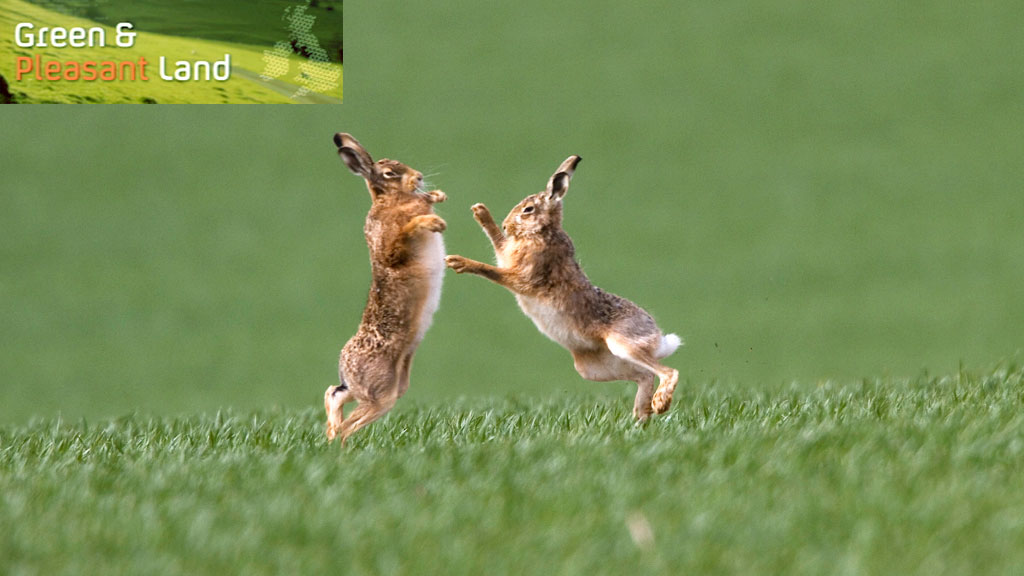Action urged to protect brown hares from further decline
Brown hare numbers have been falling for many years as a result of shooting parties and habitat loss, claim conservationists. Now they are calling on the government to do more to protect the species.

They are renowned boxers and rely on their acute sense of smell and speed to avoid predators, but even those skills cannot save the decline of brown hares from our countryside.
According to conservationists the brown hare has declined by more than 80 per cent during the past 100 years and one of the main factors being blamed for their disappearance is shooting parties.
Nearly 400,000 are shot every year, it’s only because they are fast breeders that they haven’t as of yet gone extinct. John Rimington, Hare Preservation Trust
Hares are the only game species in England and Wales not protected by a close hunting season. An old 19th century law – the 1880 ground game act – means they can be shot throughout the year, even during the breeding season.
Female hares breed from February until September. Litters usually contain two to four offspring and females give birth after 42 days.
‘Shocked’
Philip Mansbridge, CEO of Care for the Wild International, said: “I think people would be shocked to know that the people who shoot hares are the ones who get to decide on whether or not there should be a close season. Defra needs to step in, involve wildlife organisations to get some balance, and give these animals a break.”
But Charlotte Cooper from the Countryside Alliance insisted hare numbers have stabilised, adding: “”The impact of a close season throughout Europe, which is used by eighteen countries including Austria, France and Italy, is that a close season would not benefit the brown hare and indeed may have the opposite effect.”
In 1994, the UK government set up a biodiversity action plan (BAP) to try to aid recovery for the most threatened species and habitats. Brown hares are among the species included due to the significant fall in numbers.
There once used to be 4 million brown hares across Britain, the last estimate put their populations at around 700,000. In some areas of the country conservationists say they are locally extinct and after the water vole they claim it is the second British mammal to have suffered the greatest decline in the last century.
Defra has rebuffed calls by a coalition of conservation groups (Hare Preservation Trust, Care for the Wild International, Conservatives Against Fox Hunting, and Humane Society International) to change the hunting law. Campaigners says ministers in England and Wales need to look towards Scotland, where a close season for hares between 1 February and 30 September was recently introduced.
‘Extinct’
John Rimington, from the Hare Preservation Trust, told Channel 4 News: “Right now this is the main breeding season, these animals need to be protected. In the east of England hares are seen as agricultural pests, but their numbers in this area completely distorts the picture in other parts of the country.
“Nearly 400,000 are shot every year, it’s only because they are fast breeders that they haven’t as of yet gone extinct.
“Yes, other factors are also contributing to the decline of their populations such as habitat loss. Hedgerows and hay meadows have been replaced by open fields and the extensive use of herbicides and pesticides in farming can be lethal to hares. But the current code for shooting practice is simply not adequate.”
Other game species – deer, pheasants, partridges, grouse, fish such as trout and salmon – are all protected during a close season throughout Britain. Conservationists say shooting hares during breeding season is unsustainable and cruel because lactating females are killed and the young are left to die.
Habitat loss
The British Association for Shooting and Conservation (BASC) is the largest shooting organisation in the UK. Simon Clarke, from BASC, told Channel 4 News:
“Introducing a statutory close season would not necessarily lead to an increase in the overall population of hares. The hare population is believed to have been more or less stable since the 1990s. The low number of hares in some parts of the country is largely due to habitat loss and predation.
“The recent code of practice on brown hare population management recommends that pest control, where necessary, should be carried out in January and February to avoid the main breeding season.”
A spokesperson from Defra told Channel 4 News there are currently no powers to declare a close season for hares but this issue is being looked into as part of the Law Commission’s review of wildlife management rules.